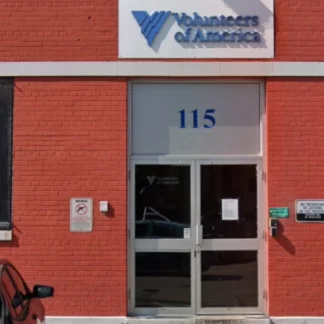Central Clinic Behavioral Health - Young Child Institute
Central Clinic Behavioral Health – Young Child Institute is a drug and alcohol r...
The Volunteers of America (VOA) Residential Reentry facility is a CARF-accredited substance abuse rehab center in Cincinnati, Ohio. This program focuses on aiding previously incarcerated individuals to transition smoothly back into society, emphasizing community safety and reducing recidivism.
The VOA Residential Reentry program offers a variety of treatment services including the following:
The cornerstone of Volunteers of America Ohio & Indiana’s rehabilitation initiatives, the Residential Reentry program offers a structured environment for those reintegrating post-incarceration. By providing a safe and supportive setting, the program helps individuals transition into their communities with confidence and a reduced risk of re-offending.
Upon entry, each resident undergoes a comprehensive assessment, leading to the creation of an individualized reentry plan. The dedicated case management team assists residents in areas like employment, housing, health services, and family reunification. Their comprehensive approach ensures every resident receives the support they need.
Recognizing the challenges that returning citizens face in securing employment, the program offers various employment services. From job readiness training to job placement support, residents are equipped with skills and resources to find and maintain stable employment.
Understanding the intricate links between incarceration, addiction, and relapse, the Residential Reentry program integrates substance abuse treatments. These interventions address both the physiological and psychological aspects of addiction, fostering sustained recovery.
To prepare residents for independent living, the program imparts essential life skills training. This encompasses financial management, conflict resolution, and interpersonal skills, among others.
Contact us for more information: (513) 639-3743

Connect with Volunteers of America - Residential Reentry by calling their admissions team directly.
(513) 639-3743 Website Get DirectionsResearch clearly demonstrates that recovery is far more successful and sustainable when loved ones like family members participate in rehab and substance abuse treatment. Genetic factors may be at play when it comes to drug and alcohol addiction, as well as mental health issues. Family dynamics often play a critical role in addiction triggers, and if properly educated, family members can be a strong source of support when it comes to rehabilitation.
Group therapy is any therapeutic work that happens in a group (not one-on-one). There are a number of different group therapy modalities, including support groups, experiential therapy, psycho-education, and more. Group therapy involves treatment as well as processing interaction between group members.
In individual therapy, a patient meets one-on-one with a trained psychologist or counselor. Therapy is a pivotal part of effective substance abuse treatment, as it often covers root causes of addiction, including challenges faced by the patient in their social, family, and work/school life.
Life skills trainings involve all the skills a person must have in order to function successfully in the world. These include time management, career guidance, money management, and effective communication. Truly successful addiction recovery is based on the ability to not only live substance-free, but to thrive. Life skills teaches the practical necessities of functioning in society, which sets clients up for success in life, and therefore sobriety.
Group therapy is any therapeutic work that happens in a group (not one-on-one). There are a number of different group therapy modalities, including support groups, experiential therapy, psycho-education, and more. Group therapy involves treatment as well as processing interaction between group members.
In individual therapy, a patient meets one-on-one with a trained psychologist or counselor. Therapy is a pivotal part of effective substance abuse treatment, as it often covers root causes of addiction, including challenges faced by the patient in their social, family, and work/school life.
Life skills trainings involve all the skills a person must have in order to function successfully in the world. These include time management, career guidance, money management, and effective communication. Truly successful addiction recovery is based on the ability to not only live substance-free, but to thrive. Life skills teaches the practical necessities of functioning in society, which sets clients up for success in life, and therefore sobriety.
In individual therapy, a patient meets one-on-one with a trained psychologist or counselor. Therapy is a pivotal part of effective substance abuse treatment, as it often covers root causes of addiction, including challenges faced by the patient in their social, family, and work/school life.
Life skills trainings involve all the skills a person must have in order to function successfully in the world. These include time management, career guidance, money management, and effective communication. Truly successful addiction recovery is based on the ability to not only live substance-free, but to thrive. Life skills teaches the practical necessities of functioning in society, which sets clients up for success in life, and therefore sobriety.
Life skills trainings involve all the skills a person must have in order to function successfully in the world. These include time management, career guidance, money management, and effective communication. Truly successful addiction recovery is based on the ability to not only live substance-free, but to thrive. Life skills teaches the practical necessities of functioning in society, which sets clients up for success in life, and therefore sobriety.
Central Clinic Behavioral Health – Young Child Institute is a drug and alcohol r...
Talbert House–Pathways, in Cincinnati, Ohio, is a residential drug and alcohol r...
Commonwealth Substance Abuse Specialists is located in Newport, Kentucky. Common...
Sober Living - Camp Washington Men's House offers a clean and affordable house f...